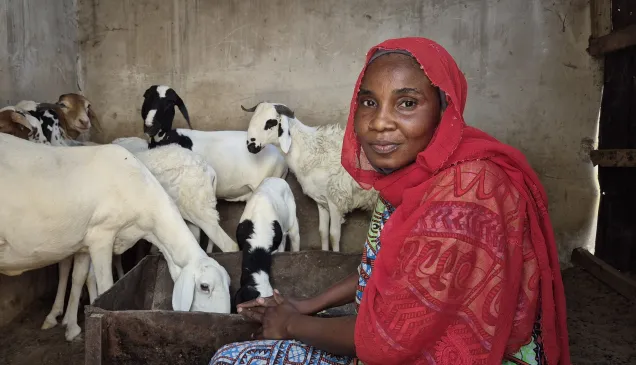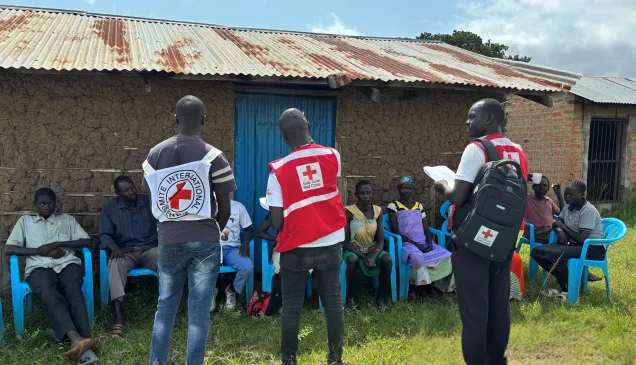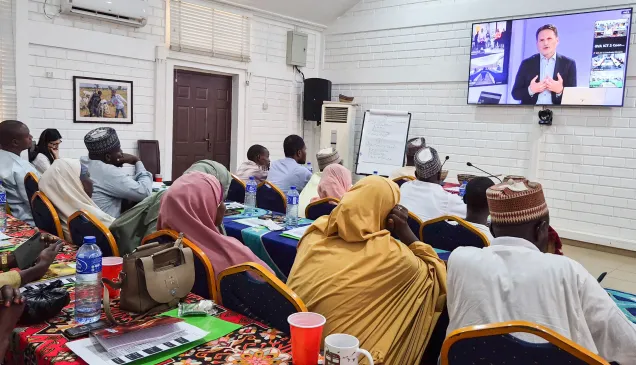Nigeria: “We go to bed hungry sometimes for two to three days”
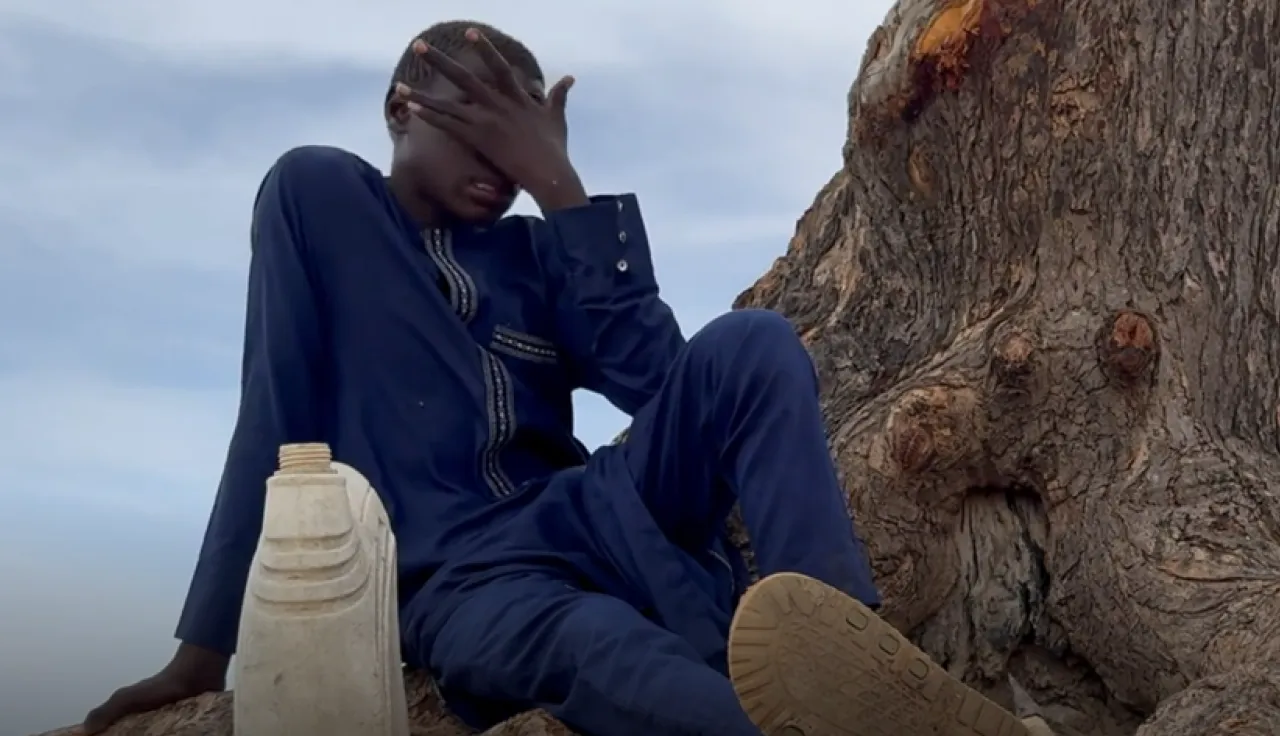
Every morning, a procession of villagers make their way from Dikwa, a town in northeastern Nigeria to farmlands, often several kilometres away, where they are able to cultivate crops for a few hours a day. Subsistence farming is the only way many can survive in the northeast, where jobs are scarce and once-thriving markets closed due to the 16-year conflict.
Among those who venture out each day, is Churi Ibrahim, a 70-year-old farmer, who struggles to feed his family of ten with the food he grows. The small amount of money he makes from tailoring work at night is far too little to buy enough food, because prices are so high. “We can only leave for the farms by 10 a.m. and must start returning by noon. Some people trek up to three hours to reach their farms,” he says.
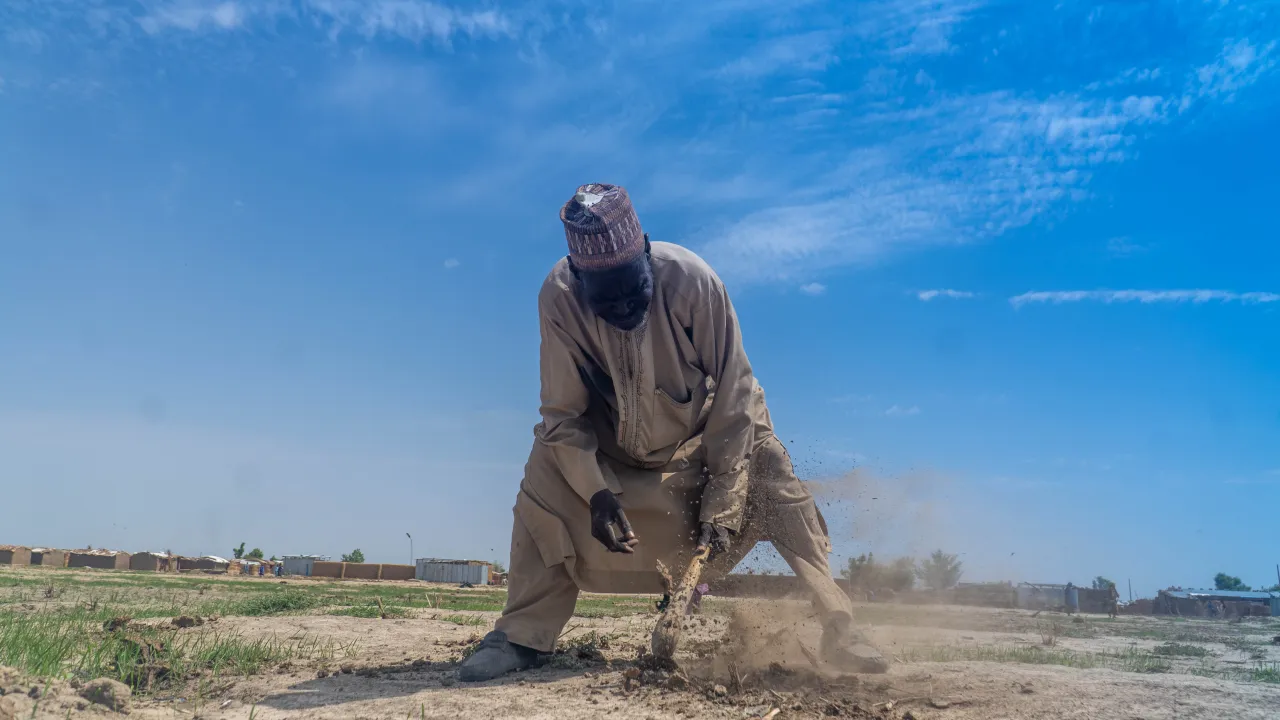
Photo: Adavize Baiye/ICRC
Photo: Adavize Baiye/ICRC
Modu Umar, a community leader, explains that hunger is causing widespread illness. Hospitals are filled with adults and children suffering from diarrhea and other ailments due to lack of food and medicine. “Farming is the only solution to hunger. Right now, we face severe food shortages. People must travel far to collect firewood to sell, just to afford food,” he says. Sadly, these accounts are not limited to Dikwa but are echoed by communities across the northeast.
Recent flooding that destroyed crops and the widening humanitarian funding gap which is causing a drastic decrease in aid, are hitting an already vulnerable population hard. Across conflict-affected areas of northeast Nigeria, more than 3.7 million people face food insecurity.
To help address these challenges and promote long-term resilience, the International Committee of the Red Cross (ICRC) has initiated an agricultural assistance programme that supports both rainy and dry season farming. This year alone, more than 21,000 farming households have received seeds tailored to local conditions, along with seed planting tools to reduce labour burdens and improve efficiency.
Diana Japaridze, head of the ICRC office in Maiduguri, says there are plans to provide solar-powered irrigation pumps that will allow farmers to produce food even during the dry season. But the coming months may bring particular hardship: “We are expecting a difficult time during lean season that typically takes place between July and September. This is the time when food stock is consumed and is limited. So eventually, people are dependent on purchasing food,” Japaridze says. “Unfortunately, conflict-affected populations have limited purchasing power. That is why they are forced to limit their daily intake.”
Bintu Konto, a mother of five who lost her husband 10 years ago, collects firewood with her children and plants crops in a field about an hour and a half’s march down a dusty road. “We go to bed hungry sometimes for two to three days,” she says. “And when God provides something, you will get to eat.”
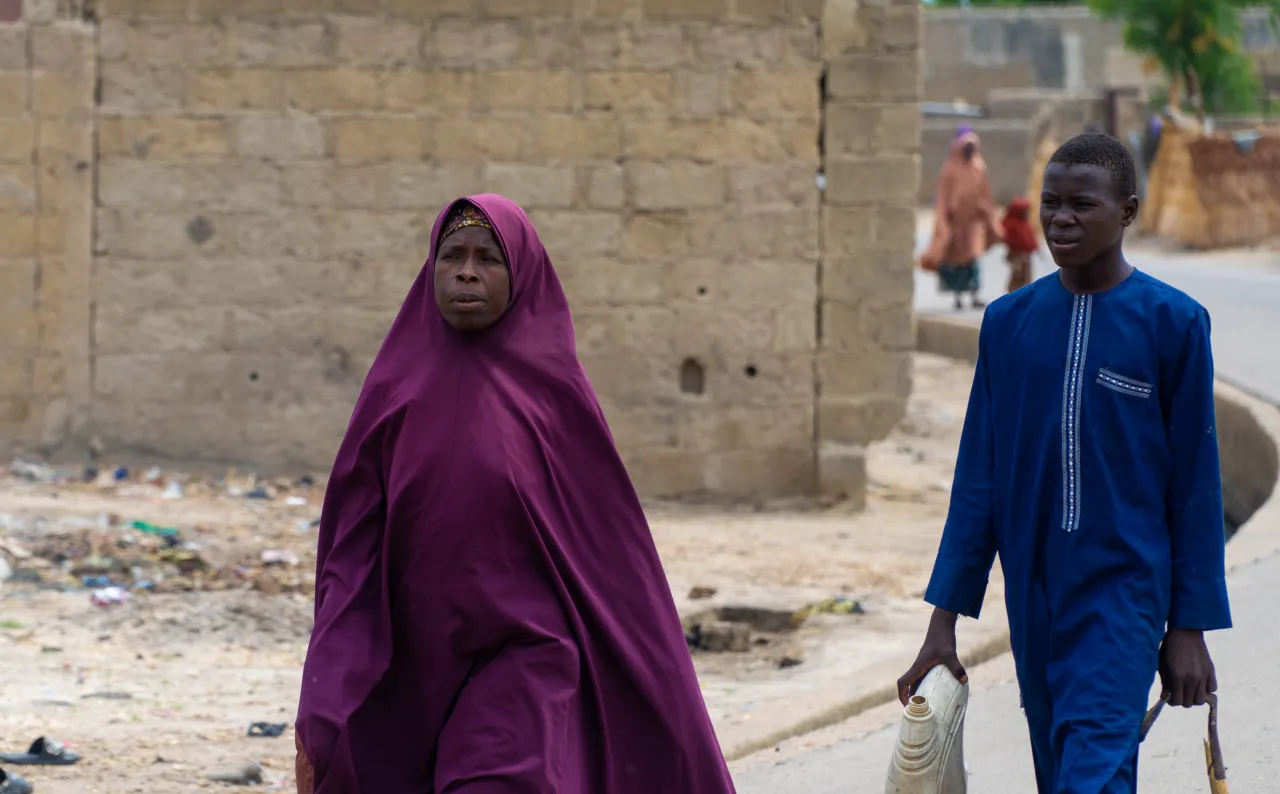
Photo: Adavize Baiye/ICRC
Photo: Adavize Baiye/ICRC

